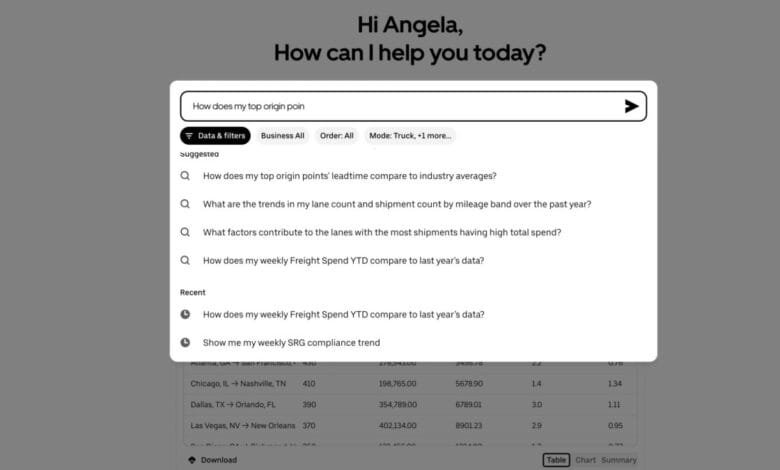Uber Freight Leverages AI to Boost Business Growth

▼ Summary
– Colgate-Palmolive’s supply chain chief Luciano Sieber used Uber Freight’s AI tool, Insights AI, to manage excessive logistics data generated during the pandemic.
– Uber Freight is launching a suite of AI features, including Insights AI and 30+ AI agents, to optimize supply chain logistics for global shippers.
– Uber Freight leverages its extensive data and industry relationships to provide AI solutions that improve efficiency and reduce costs for clients.
– Insights AI, trained on $20B worth of freight data, offers 98% accuracy in answering complex logistics queries and identifying inefficiencies in real time.
– Colgate-Palmolive uses Insights AI to monitor carrier performance and reduce logistics costs, with proactive alerts for overpayments or faster shipping options.
The logistics industry is undergoing a radical transformation as artificial intelligence reshapes how companies manage complex supply chains. When Colgate-Palmolive’s supply chain team faced overwhelming data challenges during the pandemic, they turned to Uber Freight’s AI-powered solutions to streamline operations. What began as a pilot program has now evolved into a full suite of tools designed to optimize freight management through machine learning and predictive analytics.
Uber Freight recently expanded its Insights AI platform, a logistics-specific large language model that helps shippers analyze vast datasets in real time. The system, trained on $20 billion worth of annual freight data, boasts 98% accuracy—a significant leap from earlier iterations that struggled with reliability. Companies can now ask complex queries, such as identifying underperforming shipping routes or analyzing carrier compliance, and receive instant, actionable insights.
The shift from reactive to proactive logistics marks a key advantage of these AI tools. Instead of waiting weeks for analysts to compile reports, businesses can now detect inefficiencies immediately. For example, Colgate-Palmolive used Insights AI to flag carriers failing to meet contractual obligations, allowing them to quickly adjust partnerships and reduce costs.
Uber Freight isn’t the only player in this space; competitors like Flexport have also introduced AI-driven logistics tools. However, Uber Freight’s eight years of industry relationships and proprietary data give it a unique edge. Lior Ron, the division’s founder, emphasizes that supply chains are fundamentally data-driven, and AI accelerates decision-making in ways traditional methods can’t match.
Beyond analytics, Uber Freight has deployed over 30 specialized AI agents to automate tasks across the freight lifecycle. These range from optimizing pricing strategies to suggesting faster shipping alternatives. While individual adjustments may seem minor, the cumulative savings across global networks can be substantial, something that has caught the attention of finance executives like Colgate-Palmolive’s CFO.
As AI adoption grows, companies are moving past initial skepticism and focusing on practical applications that enhance efficiency. With real-world results already driving cost reductions, Uber Freight’s AI suite represents a major step forward in modernizing an industry long plagued by fragmentation and inefficiency. The question now isn’t whether AI will reshape logistics—it’s how quickly businesses can adapt to stay ahead.
(Source: TechCrunch)
